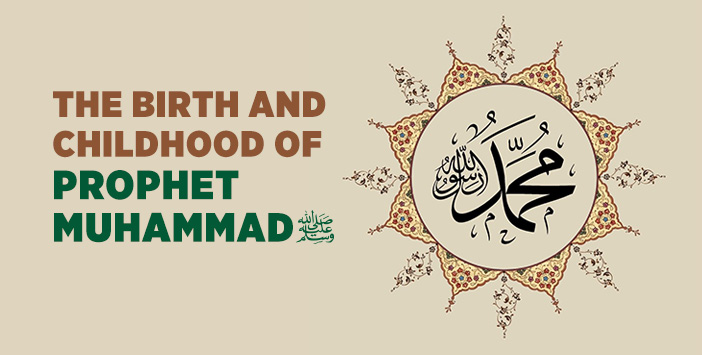The young Muhammad’s -upon him blessings and peace- first trip to Syria was with his uncle Abu Talib while still only twelve years of age. He made another trip to Yemen when he was sixteen.
On the first occasion, Abu Talib had decided to join the Meccan caravan en route to Syria. With all his family present to see him off, it was only at that moment that Abu Talib asked his beloved nephew:
“Would you like to come to Syria with me?”
The Blessed Child’s aunts and other uncles were lukewarm to the idea, however, afraid that being very young, he might catch a disease on the way. Abu Talib was hence dissuaded and decided not to go ahead with the idea of taking Muhammad -upon him blessings and peace- along. But this was to the disappointment of his beloved nephew, who was left in tears.
“Why are you crying, my dear?” asked Abu Talib. “Is it because I am leaving you behind?”
Holding fast to the reins of the camel on which his uncle was astride, he pleaded:
“Who are you leaving me with? I have neither a father nor a mother!”
Suddenly overflowing with mercy, Abu Talib then replied:
“By Allah, I will take you with me…and this will be the last time I will ever think of separating from you.” (Ibn-i Ishâk, s. 53; Abû Nuaym, Dalâil, I, 168)
His second trip was this time with his uncle Zubayr to Yemen when he was sixteen. Wanting to benefit from the blessings of his nephew in his business venture, Zubayr gained the permission of Abu Talib to take Muhammad -upon him blessings and peace- with him.[1]
On the way, they encountered a wild camel blocking a certain passage they needed to pass. The caravan decided to change their route but Muhammad -upon him blessings and peace- told the members of the caravan to let him take care of the situation instead.
The moment the wild camel saw the young Muhammad -upon him blessings and peace-, it calmed down. The Prophet mounted upon the camel, riding it until they passed the valley, after which he let the camel free.
Similarly, on their return, the caravan came across an unexpectedly flooded valley. The Prophet-to-be -upon him blessings and peace- kept his calm and told the others to follow him, leading the caravan through the valley, safe and sound, as if the Almighty had dried up their path for them. (Ibn Kathîr, al-Bidâyah, II, 282)
[1] Diyarbakrî, I, 260.
Source: Osman Nuri Topbaş, The Prophet Muhammed Mustafa the Elect, Erkam Publications




